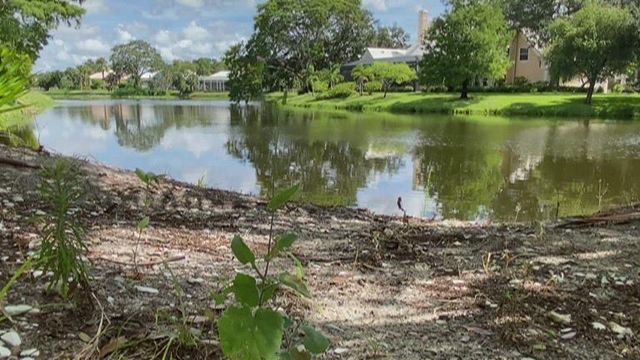NC Wildlife: How to coexist with alligators
The North Carolina Wildlife Resources Commission wants people to know how they can practice safety near alligators.
According to N.C. Wildlife, alligators naturally fear people and will try to avoid them. When people feed alligators, that becomes a problem.
How to avoid alligators
It is illegal to feed, touch, harm, harass or poach an alligator in North Carolina.
"While they rarely pose a threat to humans, alligators can become a nuisance when people either intentionally or unintentionally feed them, which causes them to associate humans with an easy meal," N.C. Wildlife said.
People should not feed other animals -- including ducks, geese, fish or turtles -- because that could attract alligators.
“For the sake of other animals, keep in mind that even if you aren’t feeding them bread — which is nutritionally poor for wildlife and is known to cause a wing deformity in birds — it causes them to gather in unnaturally large groups and increases transmission of diseases between animals,” said Alicia Wassmer, the N.C. Wildlife's alligator biologist.
Steer clear of alligators by practicing the following:
- Do not feed alligators or other wild animals. Dispose of food in the trash, not in water or on land.
- Keep pets on a leash and do not allow them to swim, drink or exercise in or near waters where alligators have been seen.
- Be especially mindful in and around waters where alligators have been seen.
- Never approach an alligator — no matter what its size.
- When fishing, take fish scraps with you or put them in a trash can. Do not throw them in the water.
If you see an alligator
Mating season is in full swing in spring, when alligators are spotted more often. Seeing an alligator is no cause for alarm, according to N.C. Widlife.
If you see one, keep a distance of at least 50 feet from the alligator.
“For reference, the length of a full-size school bus is about 35 feet long, so you could picture about one and a half buses between you and the alligator," Wassamer said.
If you see an alligator in an unusual place, like a pond or ditch, it will usually relocate itself within a few days to a few weeks.
People only need to call for help if an alligators is trapped -- such as in a swimming pool -- or blocking a public road, for instance. Only authorized wildlife officials can remove and relocate alligators.
How to call for help
If you have questions or concerns about alligators, call the N.C. Wildlife Helpline toll-free at 866-318-2401 weekdays between 8 a.m. and 5 p.m.
To report instances of poaching, harming, harassing or intentionally feeding alligators, call 1-800-662-7137.













